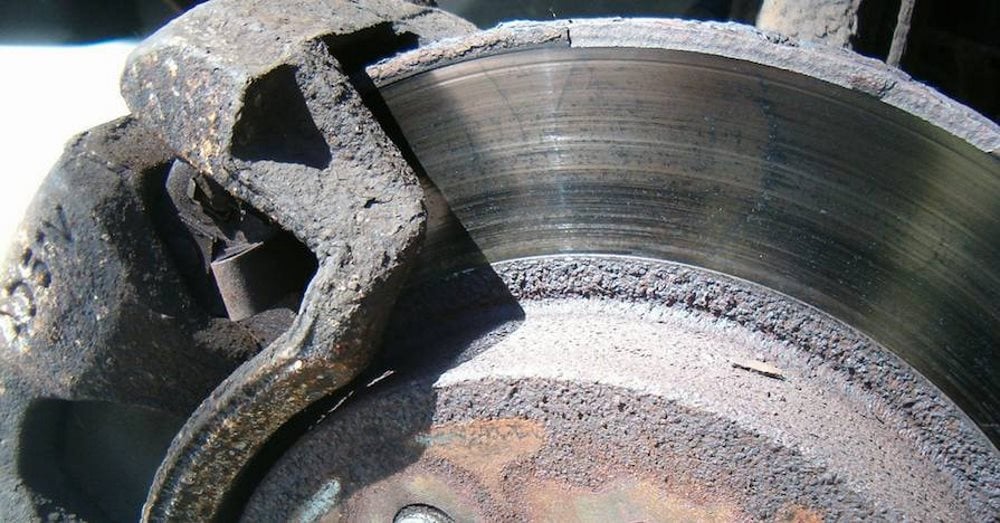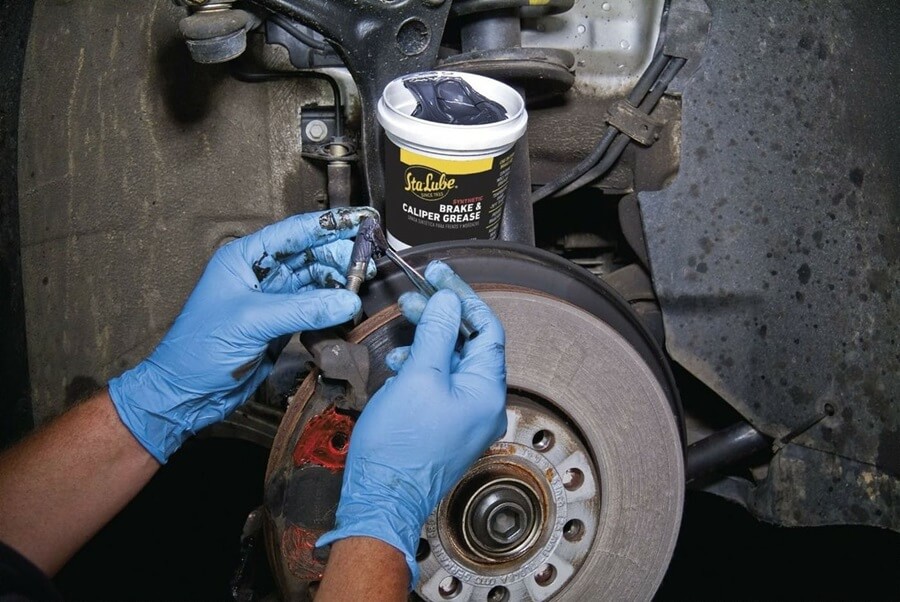Regular braking system maintenance is essential to the safety of the driver and any passengers. Brake pads are a necessary component of a safe and effective braking system. Even proper lubrication of the brake pads is a necessary maintenance procedure, often overlooked despite its significance. To understand the importance of grease and how to apply it for the best braking performance, one must be aware of the consequences of not lubricating the brake pads.

Brake grease sometimes referred to as brake lubricant or brake caliper grease, is a specifically designed lubricant that can work well in hot and extreme conditions. Its main purpose is to protect the car by reducing friction between the braking system’s parts. Reducing frictional forces while braking improves system performance and guards against corrosion.
Importance of Greasing Brake Pads

There are several reasons why lubricating the brake pads of the car is important and necessary for several reasons, including:
Noise Reduction:
Brake oil is a primary and essential need for a quieter braking experience since it significantly lowers brake noise, including annoying squeaks.
Enhanced Smoothness:
Using the proper brake oil also improves the caliper bracket’s ability to accommodate the brake pads, which is the second advantage. To enhance braking efficiency, the pads must move freely and consistently, and this requires smoothness.
Reliable and Consistent Braking:
For reliable stopping, the brake pads must be well-lubricated. The brake system keeps working and responding over time by keeping the pads from sticking or binding over time.
Similar Posts:
- Where to apply dielectric grease on a spark plug?
- White Lithium Grease vs WD40
- Can I use grease instead of assembly lube?
- Can you lubricate the timing belt?
The Right Ways to Lubricate Brake Pads
1. Disc Brake Systems:
When lubricating the backing plates of disc braking systems, oil is always used. In this case, these plates are where the brake pads connect the caliper and frame. This smart change lets you move around freely by keeping the brake pads from sticking.
2. Drum Brake Systems:
A special method is used to grease drum brake units. To make sure the drum brake system works smoothly, grease the wheel cylinder pistons, backing plate, and tuning mechanisms.
A Complete Guide on How to Use Brake Lubricant
Make sure the contact points are totally clean before you put on brake oil. This will get rid of any dirt or grease that is still there. Apply a thin, even layer of the high-temperature brake fluid recommended by the manufacturer to the specified areas. Make sure you cover every area.
What Happens When You Don’t Grease Your Brake Pads?
- Accelerated Wear and Tear: When brake pads aren’t oiled, there is more pressure between them, which makes them wear out faster and shorten their life.
- Discomfiting Sounds: Insufficient lubrication between the caliper brackets and pads may cause them to rub against one another and produce grating screeches or squeaks.
- Reduced Braking Efficiency: Brake pads that lack proper lubrication do not slide smoothly, which decreases stopping power and safety.
- Brake Failure Risks: The possibility of brake fade or failure increases due to the build-up of significant heat from friction when there’s not enough lubrication, which results in lower braking effectiveness.
Conclusion
Finally, remember to take pads while doing thorough car maintenance thoroughly. Frequent inspections, along with promptly using high-temperature brake grease, significantly contribute to improving safety protocols, extending the vital braking system components’ lifespan, and the maintenance of optimum brake performance.
If this important maintenance task is neglected, drivers and other road users may suffer serious injuries or even lose their lives. Greasing the brake pads extensively is thus necessary.


![What Happens If You Don’t Grease Brake Pads [Explained] What Happens If You Don't Grease Brake Pads](https://carstale.com/wp-content/uploads/grease-brake-pads-1024x474.jpg)